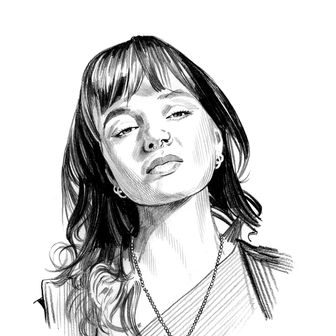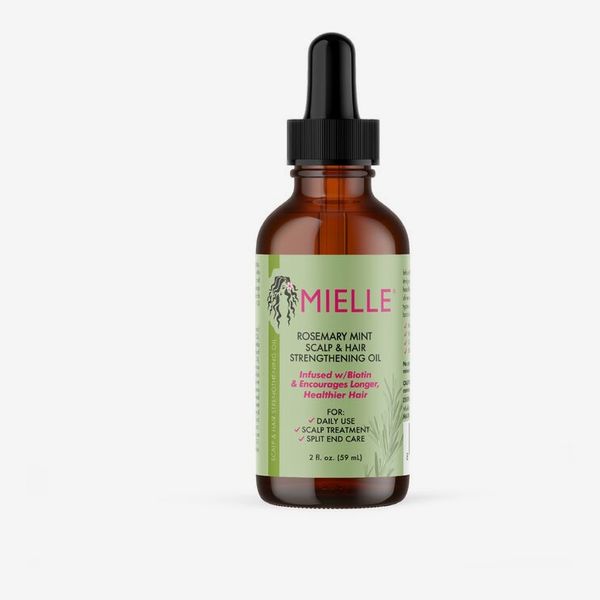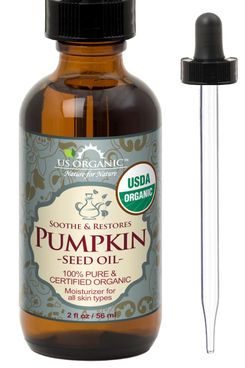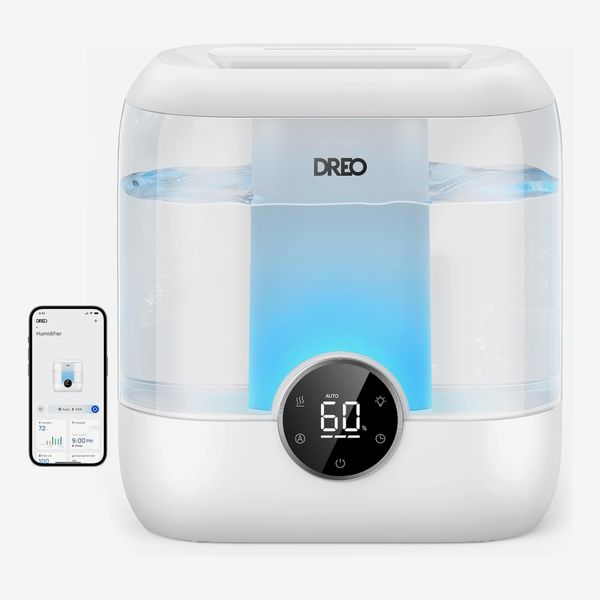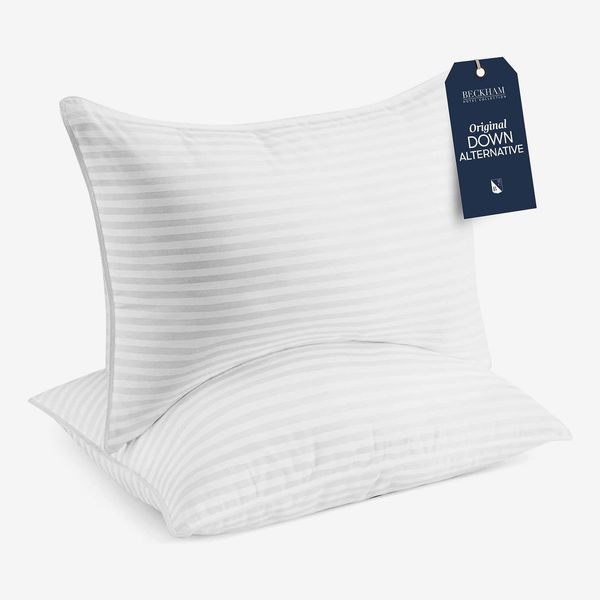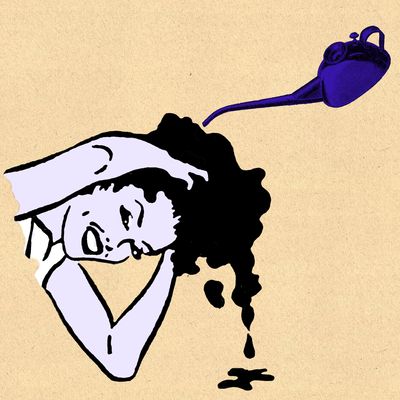
What is scalp oiling?
Despite its popularity on TikTok, scalp oiling is nothing new. “It has deep cultural roots,” Dr. Kristina Collins, a double-board-certified dermatologist. “They include Ayurvedic traditions in India using oils like coconut or amla for nourishment and scalp oiling as an essential step in Black hair care, both to maintain moisture and prevent breakage.”
Scalp oiling boosts hair growth by stimulating blood flow to the scalp. Bridgette Hill, a trichologist and scalp therapist, explains how: “Certain oils are vasodilators: that means they widen the blood vessels. Massage is also a vasodilator, but from a mechanical standpoint.” This combination of vasodilators, both oil and massage, is what makes the optimal environment in the hair follicle for growth.
But why is that increased blood flow so important to the health of your hair? “Hair growth is a result of cell, blood and tissue. In terms of living functionally, hair is non-essential tissue. So the body ‘takes’ from the hair,” Hill says. In encouraging that blood flow, you’re allowing your scalp to get access and absorb some of those nutrients.
Does scalp oiling actually make hair grow faster?
Five experts I interviewed told me that “research on this topic is sparse.” The testing that has taken place is on a small scale. “A study on rosemary oil was done by an Iranian group of scientists. In this small clinical study, they compared how efficacious rosemary oil is in treating hair loss, compared to a 2 percent concentration of minoxidil,” explains Dr. Viktoria Kozlovskaya, a double-board-certified dermatologist. The study found the two comparable, but as Dr. Kozlovskay and Dr. Ross Kopelman, a hair-transplant surgeon at Kopelman Hair Restoration, explain, experts actually no longer even recommend a two percent concentration of Minoxodil to patients, as it’s not strong enough (it’s now five percent instead).
A small — and I stress small — study was also done on pumpkin-seed oil, which had some favorable findings. Dr. Kopelman explains that this could be in part owing to pumpkin seed oil’s role as a dihydrotestosterone blocker (dihydrotestosterone, or DHT, being a hormone that can contribute to hair loss). “It’s all about anything that’s going to stimulate and cause more hair growth — or prevent hair loss, I should say. So of these natural DHT blockers, pumpkin-seed oil is certainly on the list.”
The reason that scalp oiling seems to work so well for certain people across social media? Dumb luck, thinks trichologist and CEO of advanced trichologist William Gaunitz: “There are obviously the outliers that respond really well, but the bulk of the people, it’s not going to do a whole lot.” It’s worth noting that Hill disagrees: “This is still anecdotal. You may get some results, you may not.”
So TL;DR, there’s been some research carried out, but it’s far from conclusive. When it comes to managing hair loss and promoting hair growth, scalp oiling is “not the be-all, end-all. It’s low on the totem pole. There’s other things that are going to be more effective,” explains Dr. Kopelman.
And getting to those other things before scalp oiling is actually quite important, explains Dr. Kozlovskay. “Pattern hair loss is progressive, and some hair loss can be irreversible, because miniaturization happens, and the hair follicle wouldn’t be able to produce normal, thick hair anymore. So when a patient is losing time, using the solution that isn’t the best solution for his interests is not a good practice, to say the least.”
Which oils work best?
Rosemary oil seems to be the most popular, followed by pumpkin-seed oil — they both stimulate blood circulation to the scalp, and there is evidence to suggest they act as natural DHT blockers. Dr. Collins also points towards peppermint oil for its cooling, scalp-friendly benefits, as well as castor oil, which is rich in fatty acids that may strengthen hair. She advises that lightweight oils such as teatree and rosemary should always be diluted, to avoid irritation.
When I asked Hill if the type of oil you use depends on your hair type (kinky, coily, fine, coarse, etc), her answer was that it’s not the kind of oil but how you use it. “The reality is every hair texture needs lipids. Every hair texture needs protein, every hair texture needs humectants,” she says. “Some textures need more. Some textures need less. I don’t believe in segmenting the marketplace, but what I will say is the position of the product is important.” Some fatty acids that Hill loves are shea- and avocado-based. “Everyone can benefit from them. Those with finer, silkier hair might use them as a night treatment. Women like me might use it as a styler on a daily basis.”
Can scalp oiling cause hair loss? What are the side effects?
There are potential side effects of scalp oiling, though, and they mostly come from either an allergic reaction, or overuse of the scalp oil. “We think about natural solutions as being very healthy and good for everyone, and that’s not true. They have very complex molecules. They have fragrances. They have all kind of molecules which can be as anti-inflammatory as pro-inflammatory, so people with sensitive skin, who are prone to eczema, to seborrheic dermatitis, to skin rashes, can be allergic to natural oils,” explains Dr. Kozlovskay. She also explained that, as they’re natural, some patients simply won’t suspect that the scalp oils have been the culprit of their allergic reaction. “And of course, if there is inflammation due to irritation or allergy or allergic reaction, definitely you may lose more hair.” Great!
Improper use can also lead to unwanted side effects. “Overuse without proper washing can clog hair follicles and lead to irritation or even hair shedding,” explains Dr. Collins. So only scalp oiling one to two times per week, and not globbing a big layer on to be left overnight, is advisable. “Washing your hair as frequently as you can is good,” explains Dr. Kopelman. “When you’re washing, really scrub down to the scalp, because around our hair follicles we have a build up of sebum which has high levels of testosterone — and that can cause miniaturization.”
Should I be doing it?
If you’re tackling severe hair loss, most of my experts agreed that scalp oiling is low in terms of efficiency. But most agreed that — if done correctly — there’s no harm in adding it to your routine. “Scalp oils can complement the more tried practices, but they’re not a standalone solution. For anyone experiencing significant hair loss, it’s always best to consult a dermatologist for a tailored treatment plan,” explains Dr. Collins. “Somebody who has a dry, irritated scalp, or scalp that has pustules should use specific oils in a very specific way. And that would be the only time that I would personally recommend it,” explains Gaunitz. Nice!
Hill was its strongest advocate, though. “I believe so wholeheartedly in a plant based approach to overall ritualistic scalp health,” she says, while nodding to the other pharmaceutical advancements in scalp health you might combine oiling with.
Basically: If your hair loss is severe, see a dermatologist or a trichologist, and they can advise a treatment (most likely the stronger stuff like minoxidil or spironolactone). But if you’re curious and you don’t overdo it, you could very well give scalp oiling or a scalp-massager a go — I just ordered a massager myself.
The Strategist is designed to surface useful, expert recommendations for things to buy across the vast e-commerce landscape. Every product is independently selected by our team of editors, whom you can read about here. We update links when possible, but note that deals can expire and all prices are subject to change.
